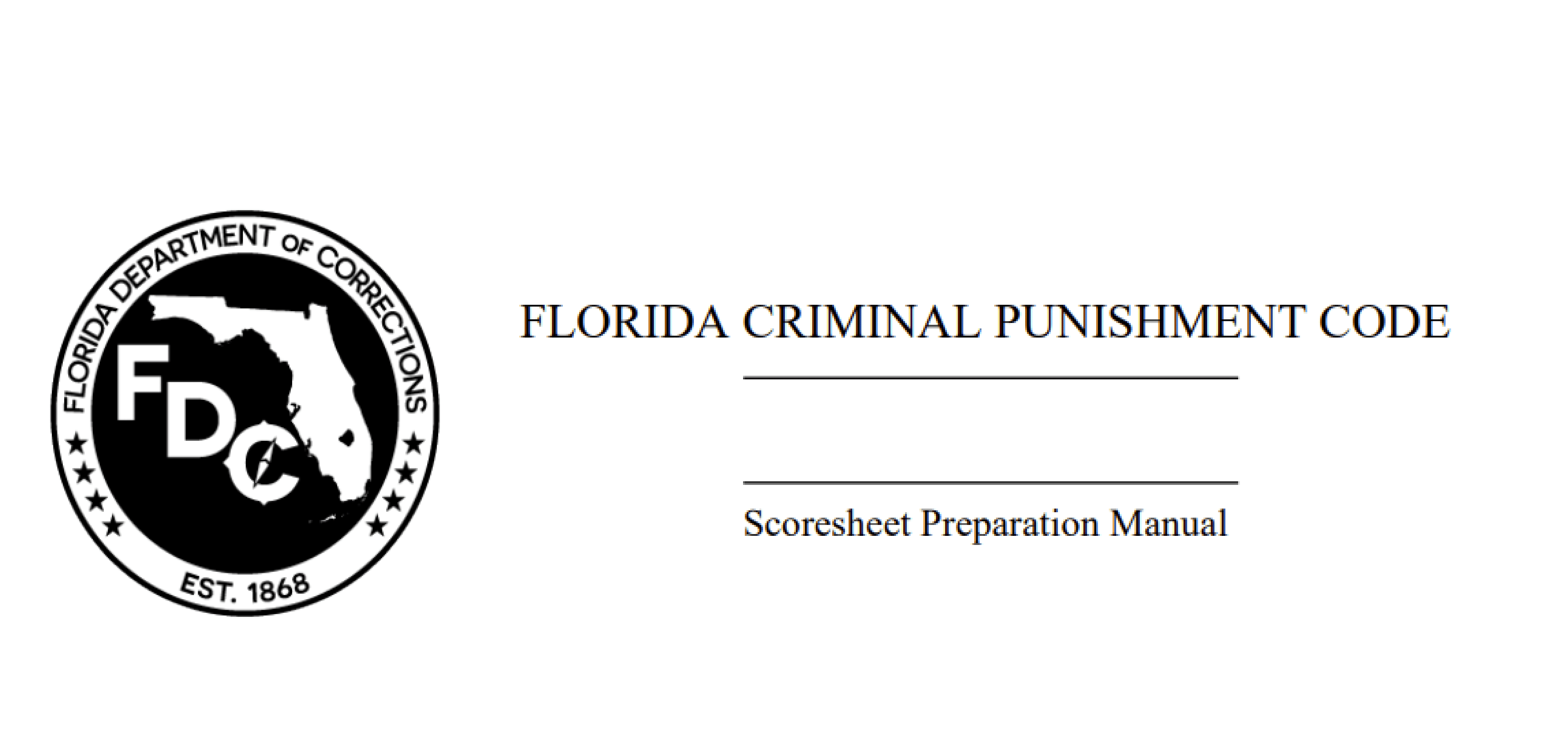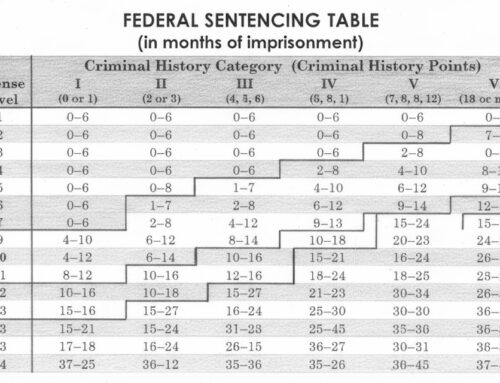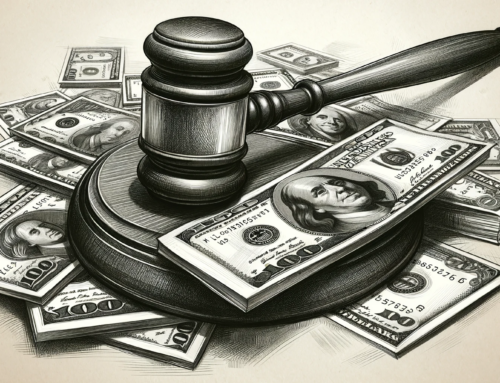Sentencing in Florida: The Florida Criminal Punishment Code
If you or a loved one have been charged with a crime in Florida, one of the first things you probably want to know is – what kind of sentence am I facing if convicted? Florida’s sentencing system can be complex, but as an experienced Miami criminal defense attorney, I’m here to break it down for you.
How Sentencing Works in Florida
Florida has adopted sentencing guidelines that are spelled out in the Florida Criminal Punishment Code (FCPC). The FCPC establishes recommended sentencing ranges for felony offenses based on two factors – the degree of the felony charged (first, second, or third degree), and the defendant’s prior criminal record. Judges are required to impose a sentence within the guideline range unless there are circumstances that support going above or below the range.
There are a few key things to understand about sentencing under the FCPC:
- Judges have wide discretion to impose any sentence within the guideline range. There is no “standard” or “typical” sentence for a particular offense. The range just provides guidance.
- Going outside the range is possible, but requires written reasons explaining why it is necessary. Departures above or below the range can’t be based solely on race, gender, religion, national origin, disability, or marital status.
- The FCPC only applies to felony offenses, not misdemeanors. Misdemeanors have separate statutory maximum sentences.
- The FCPC does not apply to capital felonies punishable by life or death sentences. Capital felonies require separate penalty proceedings.
- Mandatory minimum prison terms may apply to certain offenses and can affect or supersede the guideline ranges.
So, in determining a likely sentence, the two key factors are the degree of the felony and the person’s prior record. Let’s take a closer look at how these work.
Felony Offense Levels and Rankings in Florida
Felony offenses in Florida are categorized into first, second, and third-degree felonies. First-degree felonies are the most serious, while third-degree felonies are the least serious. The ranking determines the maximum prison term and guideline range.
First Degree Felonies
A first-degree felony is any felony that is punishable by death or life imprisonment. Specific examples include:
- Murder
- Manslaughter
- Sexual battery
- Armed kidnapping
- Armed burglary
- Armed robbery
- Aggravated child abuse
- Aggravated abuse of the elderly or disabled
- Trafficking in large quantities of controlled substances
The maximum prison sentence for a first-degree felony is 30 years (if not punishable by life). Under the FCPC, the typical sentencing range for a first-degree felony can span from about nine years up to life, depending on the person’s record.
Second Degree Felonies
Second-degree felonies are serious crimes but are considered a step below first-degree. Common examples include:
- Unarmed burglary
- Unarmed robbery
- Grand theft
- Manslaughter
- Sexual battery (certain types)
- Aggravated assault
- Child abuse
- Elder abuse
- Lewd conduct
- Carjacking
The maximum prison sentence for a second-degree felony is 15 years. Under the FCPC, the typical sentencing range spans from about 3.5 to 15 years in prison, depending on priors.
Third Degree Felonies
Third-degree felonies encompass a wide range of offenses considered to be the least serious type of felony in Florida. Some examples are:
- Non-violent theft
- Criminal mischief
- Credit card fraud
- Forgery
- Computer crimes
- Drug possession
- Fleeing police
- Unlawful sale of some drugs
The maximum sentence for a third-degree felony is five years. The typical FCPC range includes non-prison sanctions of up to about four years in prison, depending on the offender’s history.
The Florida Criminal Punishment Code Scoresheet
The FCPC uses a scoresheet system to calculate sentencing ranges based on the degree of the felony and the defendant’s priors. The scoresheet assigns “points” for different aspects of the person’s criminal history. More points = a higher guideline range.
Here are some key things that are scored:
- Primary offense – The current felony charge. The more serious the degree, the more points. First-degree felonies get the most points.
- Additional offenses – Any other crimes before the court for sentencing, even if uncharged or dropped. They count as “prior” offenses.
- Prior serious felonies – Certain categories like violent crimes, sex offenses, and drug trafficking. Each qualifying prior adds additional points.
- Prior non-serious felonies – Other third-degree felonies besides the “serious” ones. Each adds 1 point.
- Prior misdemeanors – Each prior misdemeanor conviction adds 0.5 points.
- Legal status violations – Points for committing a crime while on probation, parole, pretrial release, etc.
After totaling the points, the scoresheet provides a guideline sentence range. The judge selects a sentence within that range, although departures are allowed if written reasons are provided.
Florida Sentencing Enhancements and Minimum Mandatory Terms
In addition to the FCPC guidelines, Florida law contains a number of enhanced sentences and mandatory minimum terms that can come into play depending on the charges:
- 10-20-Life – Brandishing a firearm during certain crimes requires a minimum 10-year prison term, discharging it 20 years, and shooting someone 25 to life.
- Violent career criminal – A mandatory minimum 30-year prison term if convicted of a violent felony with prior violent felonies.
- Three strikes felony offender – Mandatory life imprisonment if convicted of a violent felony with two priors.
- Habitual felony offender – Allows doubling of maximum sentence permitted by law based on two prior felony convictions.
- Habitual violent felony offender – Life felony with a 10-year minimum based on prior violent felony plus current violent crime.
- Prison releasee reoffender – Conviction within three years of release from prison requires the maximum sentence allowed by law.
- Drug trafficking – Conviction for trafficking over certain weight thresholds has mandatory minimum prison terms by statute.
The applicability of any sentencing enhancement must be determined by a criminal defense attorney reviewing the specific charges and prior record in each case. Never assume you are facing an enhanced penalty without having an attorney confirm it.
Understanding Florida Sentences – Prison, Probation, Fines, Restitution
If convicted of a felony in Florida, there are four main components that make up a sentence – prison time, probation, fines and restitution:
- Prison – The time to be served incarcerated. May range from 1 year up to life, depending on the offense and priors. Some low-level felonies allow non-prison sanctions.
- Probation – Period of court supervision from one to five years (up to 30 years for sexual predator probation) served in the community after release. Violating conditions can result in new criminal charges or a return to prison.
- Fines – Monetary penalties up to $15,000 imposed per count, excluding restitution and court costs. Fines are in addition to any prison or probation.
- Restitution – Payment owed to victims for any losses suffered, such as medical expenses, property loss/damage, lost income, etc. Can be imposed along with fines.
For certain third-degree felonies, a sentence of probation without any incarceration in prison may be possible, depending on the exact offense and the defendant’s background. But for more serious felonies, a combination prison-probation sentence is likely. Consulting with an attorney about potential sentencing outcomes is critical before deciding how to proceed in a case.
Don’t Leave Your Sentencing to Chance – An Experienced Miami Criminal Defense Lawyer Can Help
Being charged with a felony in Florida is very serious, with severe potential penalties that can disrupt your life for years. Never leave your sentencing to chance. As an experienced Miami criminal defense attorney, I have helped many clients facing felony charges in state courts across South Florida. I know how to dig into the details of your case and build strong defenses.
I also have the knowledge and expertise to navigate Florida’s complex sentencing system in order to help position you for the best possible outcome. Every case has unique defense options and variables – contact my office for a free case review and sentencing estimate. We will sit down and have an honest discussion about what you are facing and develop an aggressive defense strategy. With an expert criminal defense lawyer on your side, you can ensure your rights are protected each step of the way.
CALL US NOW for a CONFIDENTIAL INITIAL CONSULTATION at (305) 538-4545, or take a moment to fill out our confidential and secure intake form.* The additional details you provide will greatly assist us in responding to your inquiry.
*Due to the large number of people who contact our law office requesting our assistance, it is strongly suggested that you take the time to provide us with specific details regarding your case by filling out our confidential and secure intake form. The additional details you provide will greatly assist us in responding to your inquiry promptly and appropriately.
THERE ARE THOUSANDS OF LAW FIRMS AND ATTORNEYS IN SOUTH FLORIDA. ALWAYS INVESTIGATE A LAWYER’S QUALIFICATIONS AND EXPERIENCE BEFORE MAKING A DECISION ON HIRING A CRIMINAL DEFENSE ATTORNEY ATTORNEY FOR YOUR MIAMI-DADE COUNTY CASE









